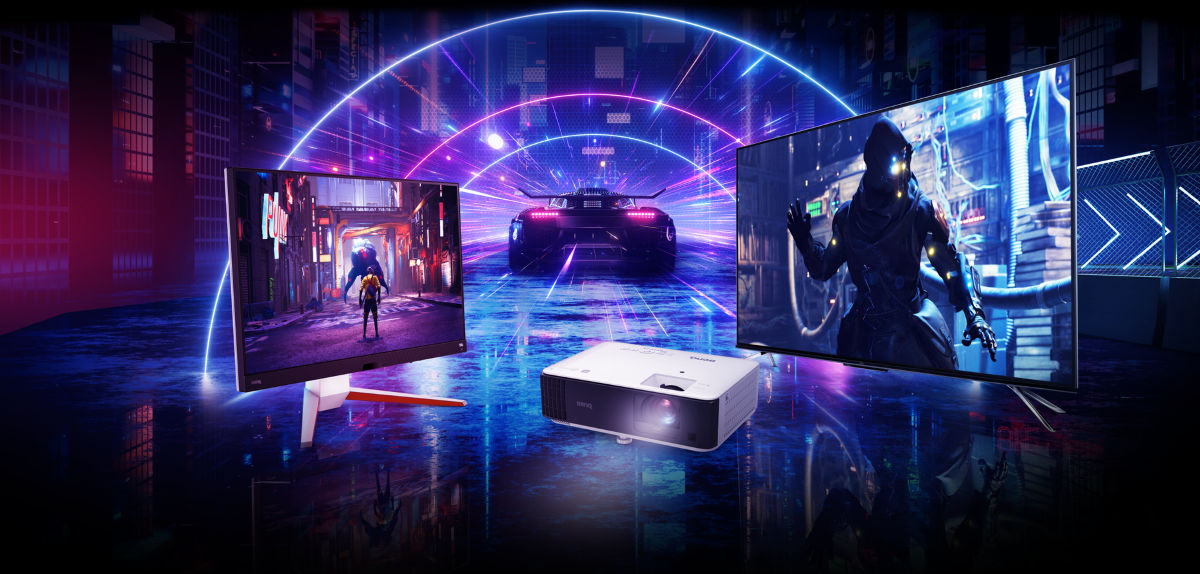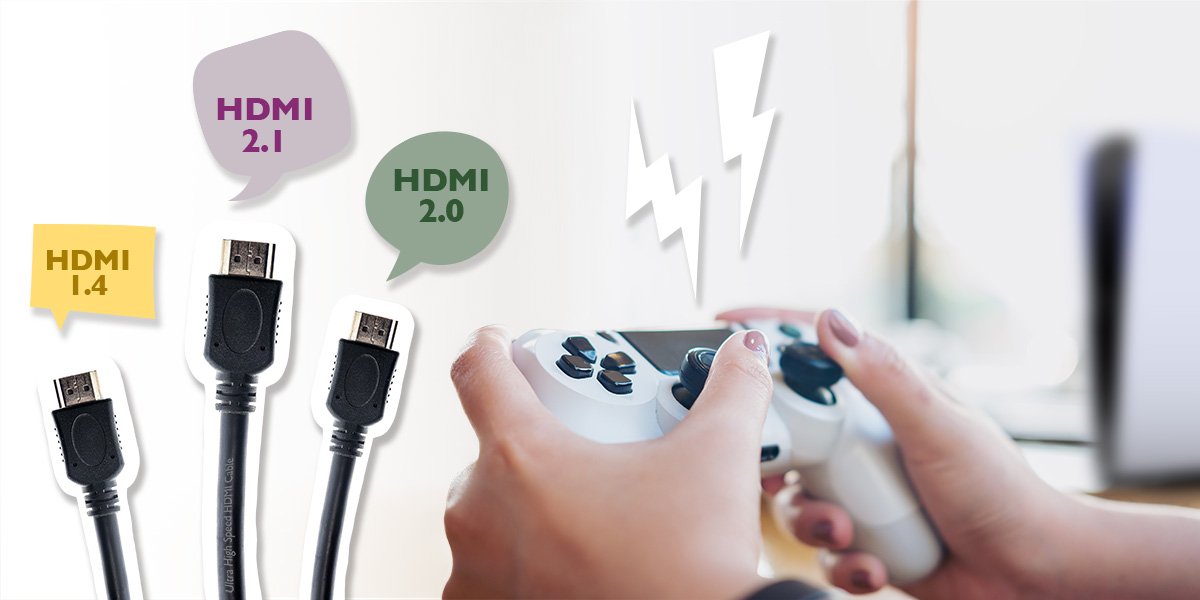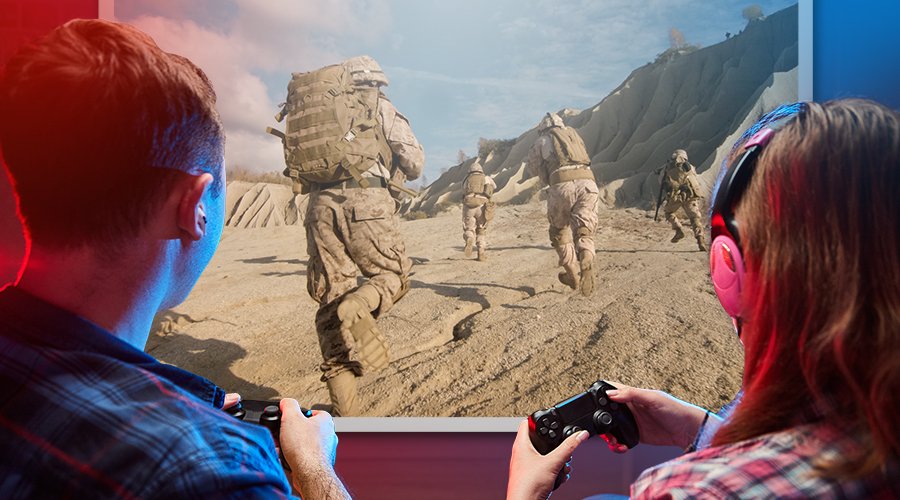If you mostly enjoy shooters, whether first person or third person, and have a leaning towards competitive gaming, then a monitor would be best. While we still recommend going with 4K HDR, in this situation you likely prioritize high frame rates over visual quality. Still, a 4K monitor in up to 32” for PC or a gaming TV in the 43”-55” size class are what you’re looking for. Make sure you have at least 120Hz refresh rate with variable refresh rate support (VRR, FreeSync and G-Sync). These days you should aim for HDMI 2.1 ports instead of the older HDMI 2.0 standard so you get full support for 4K 120Hz. Low input lag is a must have either way, and you should aim for models that provide 4ms total input lag, and certainly not more than 16ms.
The advantage of smaller 4K gaming monitors and TVs is that you can sit close to them and enjoy their high pixel density. In competitive gaming that gives you the ability to spot movement and details very quickly. Also, these displays don’t take up too much space so they’re great for smaller rooms and homes.
- Sports, Racing, and Party Games
For gamers that prefer more casual gaming genres such as sports and racing, bigger screens should be considered. The same applies to gamers who enjoy co-op, local or online. If your favorite games are four player-based shooters like GTFO, you need more screen real estate to get a better view of what everyone’s doing. If you enjoy sports and racing, you want a larger view as well as great color support. We recommend an OLED TV in 65” or a gaming projector capable of 80”-150” image size. Due to screen size, projectors are by far the best for split screen gaming because each portion is the size of a full display. Even on a 65” TV, split screen leaves each player with a rather small part of the display.
For casual adventure and party game-style titles, “regular” TVs and home cinema projectors are fine, as low input lag isn’t essential, nor is variable refresh rate. But for sports, racing, and co-op team shooters you really do need a TV that’s designed for gaming, and the same applies to projectors. Low input lag, high refresh, and VRR support are vital for your experience in those genres and game styles.
Since gaming projectors now have response, refresh, and latency that match those of the best gaming TVs, they edge out the competition by offering considerably larger display sizes. Also, while OLED TVs have almost no lag and look great in terms of picture quality, their panels do deteriorate with time and are susceptible to image retention. Those are not problems with projectors, especially those that use newer 4LED technology.
Open world games deserve the biggest screen possible, and thus gaming projectors are recommended. If your favorite games are titles like GTA, Death Stranding, any of the Assassin’s Creed games, Cyberpunk 2077, or the upcoming Starfield, then a good gaming projector is ideal to do them justice with screen sizes ranging from 80” to 150”. There’s no way a gaming TV can match this kind of sheer scope. However, screen size isn’t everything, you still need to choose a projector that’s gaming-focused, with low input lag, good HDR, and 4K. Having 120Hz support is great but not essential here, as all of these open world games play best at 60Hz while having visual detail maximized. Graphics quality is more important than high refresh with this genre.
Because open world games tend to be very compelling, you often find yourself playing for extended periods of time. Unlike TVs, projectors use indirect illumination so they cause very little eye fatigue. Just think of the movie theater. You can watch a three-hour movie and not feel eye strain, but doing the same on a TV or monitor will tire you out. That’s because direct illumination has a lot more blue light and is simply more fatiguing for eyes. So, this is another advantage for projectors. Add to that the benefit of a huge screen in games that aspire to create living worlds. Even a large TV has very clear edges and a limited field of view. But projectors expand viewing to a massive size without jarring borders and a much wider field of view for that important immersion factor.
It’s no coincidence that THX only recommends projectors for getting the full experience of the advanced audio technology the company produces, based on the wide viewing angles and spacious sound produced by good quality projectors.






